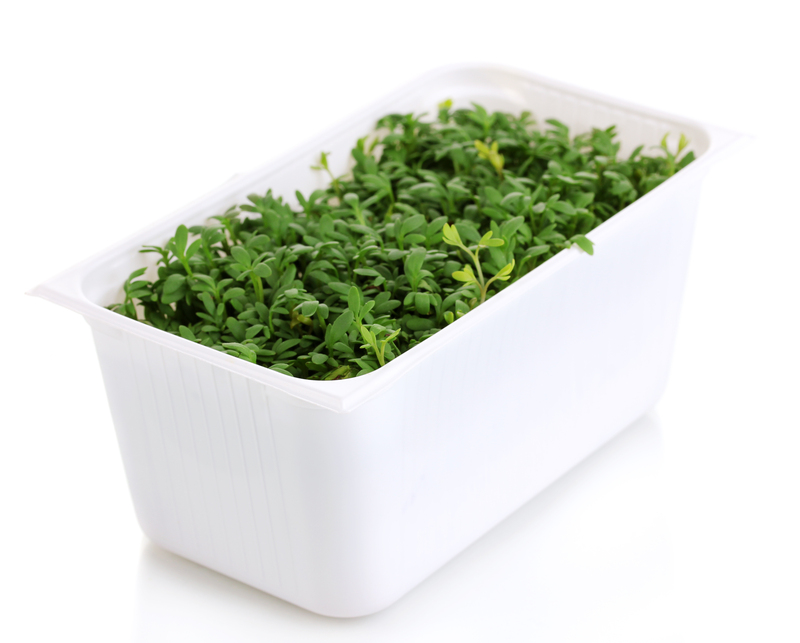Creative Ways to Dispose of Your Old Pots and Pans Responsibly
Are your old pots and pans cluttering up your kitchen cabinets or gathering dust in the attic? If you're wondering what to do with cookware that's past its prime, you're not alone. Thousands of households face the same dilemma every year, and, with an eye towards reducing waste, finding creative and eco-friendly ways to dispose of old pots and pans responsibly is more important than ever.
Why Disposing of Cookware Responsibly Matters
Before you toss that rusty saucepan or scratched nonstick frying pan in the trash, consider this: Improper disposal of cookware adds to the growing landfill problem and wastes valuable materials that could be reused or recycled. Many pots and pans contain metals, plastics, and coatings that, if left to languish in landfills, could take hundreds of years to break down, potentially leaching harmful chemicals into the environment.
Being responsible with your old kitchenware not only supports environmental health but can also benefit your community and even inspire a touch of creativity in your own home!

Understanding the Materials: Can Old Pots and Pans Be Recycled?
Not all cookware is created equal, which means not all pans and pots can be recycled in the same way. Here's a breakdown of common cookware materials:
- Stainless steel--Widely recyclable, but may need to have plastic or rubber handles removed first.
- Cast iron--Highly recyclable and even valuable as scrap metal.
- Aluminum--Valuable and typically recyclable, though nonstick coatings can complicate things.
- Nonstick (Teflon)--Challenging, as many facilities cannot process nonstick coatings safely.
- Copper--Valuable, though often requires removal of other materials or coatings before recycling.
It's important to note that most curbside recycling programs do not accept cookware due to their size and the materials involved. However, as you'll see below, there are plenty of alternative options for disposing of cookware responsibly.
7 Eco-Friendly and Creative Ways to Dispose of Old Pots and Pans
1. Donate to Charities, Shelters, or Thrift Stores
Many old pots and pans still have plenty of life left in them. If your cookware is not warped, cracked, or too worn, consider donating it:
- Goodwill, Salvation Army, or local thrift shops
- Homeless shelters or food banks
- Community centers or youth cooking programs
Donating old cookware gives it a new lease on life while helping someone in need. Be sure to thoroughly clean items before drop-off, and call ahead to ensure the organization accepts kitchenware.
2. Upcycle: Transform Pots and Pans into Home Decor or Planters
Give your cookware a second act as a creative decor feature. Upcycling is a fun and environmentally friendly way to repurpose old pots and pans.
- Planters: Drill drainage holes and use old saucepans or skillets as quirky garden planters for herbs or flowers.
- Wall Art: Arrange a collection of old pans as a rustic wall hanging in your kitchen.
- Clocks: Attach clock hands and a mechanism to a pan to make a unique wall clock.
- Storage: Use deep pots as stylish holders for utensils or office supplies.
Your only limit is your imagination! Upcycling encourages a sustainable lifestyle and can add a touch of charm to your living spaces.
3. Recycle Old Cookware at Scrap Metal Facilities
If your old pots and pans are beyond reuse, recycling them is an excellent option--especially for all-metal cookware such as cast iron, stainless steel, and copper.
- Search for a local scrap metal recycler online or call your city's waste management department for guidance.
- Remove any plastic parts, rubberized handles, or glass lids, as these are usually not recyclable with scrap metal.
- Note: If your cookware has a nonstick coating, ask the facility if they accept it.
Some scrap metal recyclers even pay you for old cookware, making this option both eco-friendly and rewarding.
4. Sell Old Pots and Pans Online or at Yard Sales
Yes, people buy secondhand cookware! If your pots and pans are in good--if used--condition, consider selling them:
- Online marketplaces (eBay, Facebook Marketplace, Craigslist)
- Local yard sales or flea markets
- Niche groups (such as cast iron enthusiasts or vintage cookware collectors)
This approach extends the lifespan of your cookware and puts a bit of cash back in your pocket. When listing, be honest about any defects and offer a good cleaning before handing items over.
5. Bring to Household Hazardous Waste Collection Events
For nonstick pans with a Teflon or similar chemical coating, regular recycling isn't always an option. Check if your city or county hosts Household Hazardous Waste (HHW) days where materials like old pans are accepted.
- Most communities have annual or seasonal drop-off events for items not accepted curbside.
- Look up your municipality's HHW program for dates and accepted materials.
This ensures potentially hazardous materials are disposed of in a safe, environmentally sound manner.
6. Offer to Local Art Programs, Schools, or Theatres
You'd be surprised how often old pots and pans find new life as props for school plays or material for art classes. Contact local:
- Elementary and high schools
- Community centers with art programs
- Theatre groups or drama clubs
*Note:* Teachers and artists may jump at the chance for free supplies, even if your cookware looks too worn for a kitchen.
7. DIY Repair or Restoration for Extended Use
Before you give up on an old pot or pan, ask yourself: Can it be repaired or restored? There are DIY methods for fixing or refreshing many types of cookware:
- Cast iron: Remove rust with steel wool and re-season the surface to bring it back to life.
- Stainless steel: Use baking soda paste to buff out stubborn stains and restore shine.
- Copper: Polish with lemon juice and salt for a gleaming finish.
- Wobbly handles: Tighten or replace screws on your own, or take to a repair shop.
A little elbow grease can make old cookware good as new!
What to Avoid When Disposing of Old Pots and Pans
While there are many responsible ways to dispose of cookware, here are some things you should not do:
- Never burn cookware--especially nonstick pans, as the fumes can be toxic.
- Don't dump cookware in natural areas--it contributes to environmental pollution and is illegal in many places.
- Avoid sending to landfill whenever possible. Explore reuse and recycling first!

Frequently Asked Questions About Disposing of Old Pots and Pans
Can you recycle Teflon-coated pans?
Unfortunately, most household recycling programs do not accept Teflon or other nonstick-coated cookware in regular bins. However, some specialized scrap yards or hazardous waste collection programs may accept them. Remove handles or non-metal attachments if possible before recycling.
What about cookware with plastic handles or glass lids?
Plastic handles and glass lids are generally not accepted with scrap metal recycling. Remove these parts before taking metal pans to a facility. Many glass lids are made of tempered glass, which is also not always recyclable curbside--check with your local recycler for guidance.
Do non-profit organizations actually want used cookware?
Yes--provided the items are clean and not deeply damaged. Always ask before donating. Many shelters and community kitchens rely on donated kitchenware.
Are there any creative projects for kids using old pots and pans?
Absolutely! Old pans can become musical instruments (think makeshift drums), be turned into birdbaths or wind chimes, or feature in art and gardening projects. Get the kids involved for a fun and educational activity.
Summary: Choosing the Best Way to Dispose of Old Cookware
When it comes to responsible disposal of old pots and pans, there are more options than you might expect. From donating to those in need, to upcycling into home decor, recycling scrap metal, or even embarking on creative art projects, the possibilities are endless. The key is to avoid landfill wherever possible and prioritize reusing, recycling, or repurposing.
Whether you're a sustainability enthusiast or simply decluttering the kitchen, practicing responsible disposal of your old pots and pans can make a real difference. The next time you're ready to upgrade your cookware, remember these creative, eco-friendly options and inspire others to do the same.
Do you have a unique way of disposing of old cookware? Share your tips and inspire our community in the comments below!
Every small effort counts towards a greener, cleaner planet--one pot and pan at a time!